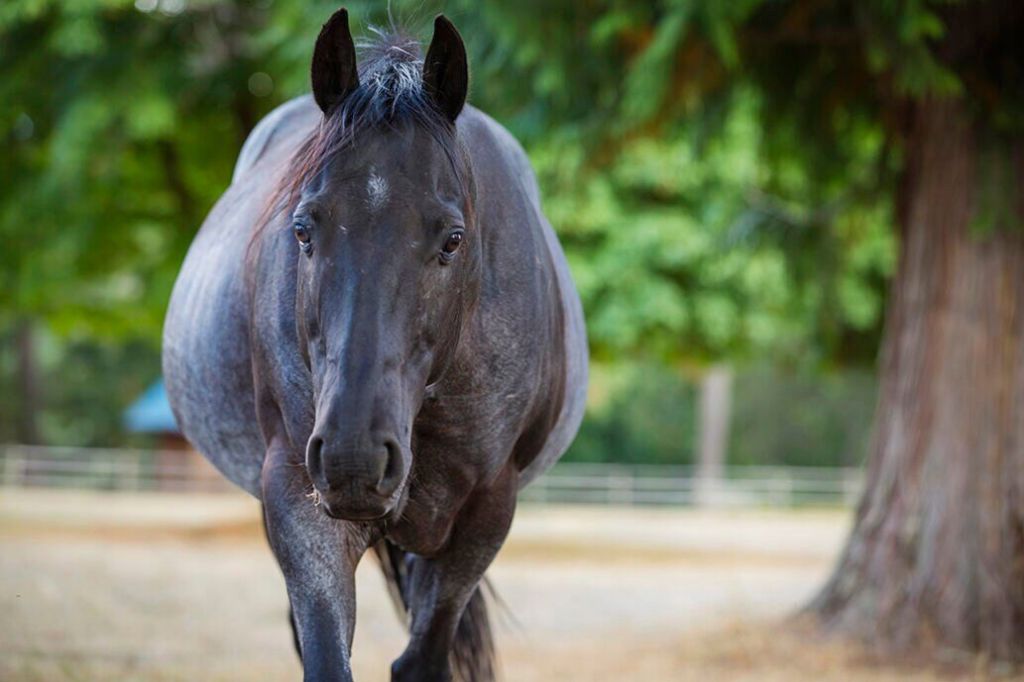Animals lack the right to file lawsuits, Oregon Court of Appeals says
Published 9:00 am Sunday, September 4, 2022

- Justice, the horse that animal activists wanted to sue its former owner for support, walks in a pasture in Washington County.
SALEM — The Oregon Court of Appeals has ruled that animals can’t file lawsuits, a relief to farm advocates who had worried about potentially expansive new litigation over livestock production.
The appellate court has determined a horse lacks the legal right to sue its former owner, who’d pleaded guilty to neglecting the animal.
The Oregon Farm Bureau, Oregon Cattlemen’s Association and Oregon Dairy Farmers Association feared the case could set a precedent, exposing meat and dairy producers to lawsuits from activists.
“If you look at the mission of most of these groups, that is the ultimate goal: to stop the ownership of animals,” said Mary Anne Cooper, the Farm Bureau’s vice president of government affairs.
The Animal Legal Defense Fund, which sought to represent the horse, is planning to petition the Oregon Supreme Court to review the dismissal, said Christopher Berry, the group’s managing attorney.
“It’s an unjust result to say an animal cruelty victim can’t have their day in court,” Berry said.
A three-judge appellate panel has unanimously rejected the argument that Kim Mosiman, the executive director of an animal rescue nonprofit, could seek damages on the horse’s behalf from Gwendolyn Vercher, who surrendered the animal in 2017.
Vercher was sentenced to three years probation and ordered to pay $4,000 in fees, including restitution for the veterinary treatment of the horse’s malnourishment, lice and infections, but the animal still needs specialized medications and care, according to court documents.
In 2018, a judge in Washington County dismissed a tort complaint against Vercher ostensibly filed by Justice, the horse, because a “non-human animal” doesn’t have the “legal qualifications necessary for the assertion of legal rights and duties in a court of law.”
Mosiman, who now cares for the horse, admitted that Justice cannot independently file a lawsuit but argued that she could represent the animal’s interests in court as a guardian.
However, the appeals court said the situation isn’t sufficiently similar to those in which a guardian is appointed for a child or a person with cognitive disabilities.
An animal “inherently lacks self-determination and the ability to express its wishes in a manner that the legal system would recognize,” the ruling said.
Allowing attorneys to represent animals this way would be “susceptible to abuse,” with the animal potentially serving as a “pawn to be manipulated on a chessboard larger than his own case,” the appellate court said, citing legal precedents.
Only human beings and their legal entities can pursue lawsuits while animals “are neither natural nor artificial persons,” the ruling said.
Despite animal welfare laws that recognize them as “sentient beings capable of experiencing pain, stress and fear,” animals nonetheless remain a form of property without “substantive or procedural rights,” the ruling said.
“That the legislature intended to protect animals from needless suffering does not change that legal reality, and neither we nor the Oregon Supreme Court has suggested otherwise,” the appellate court said.
The Animal Legal Defense Fund claimed the appellate court could have recognized the limited procedural right of animals as crime victims to sue their offenders.
“The lawsuit is fundamentally about an animal’s right to be free from illegal animal cruelty,” said Berry, the group’s managing attorney. “It does not extend any further than that.”
However, farm and livestock organizations were concerned a broad ruling could throw open the door for other lawsuits on behalf of animals, such as cattle suing ranchers to challenge their confinement.
Even a narrower ruling could have served as a foot in the door, inviting additional cases that sought “limitless” legal recourse for animals, said Cooper, the Farm Bureau’s vice president of government affairs.
It’s unlikely that state lawmakers are prepared to give animals the right to file lawsuits, as the ruling suggests is possible, but “it’s absolutely something we will be watching for,” she said.





